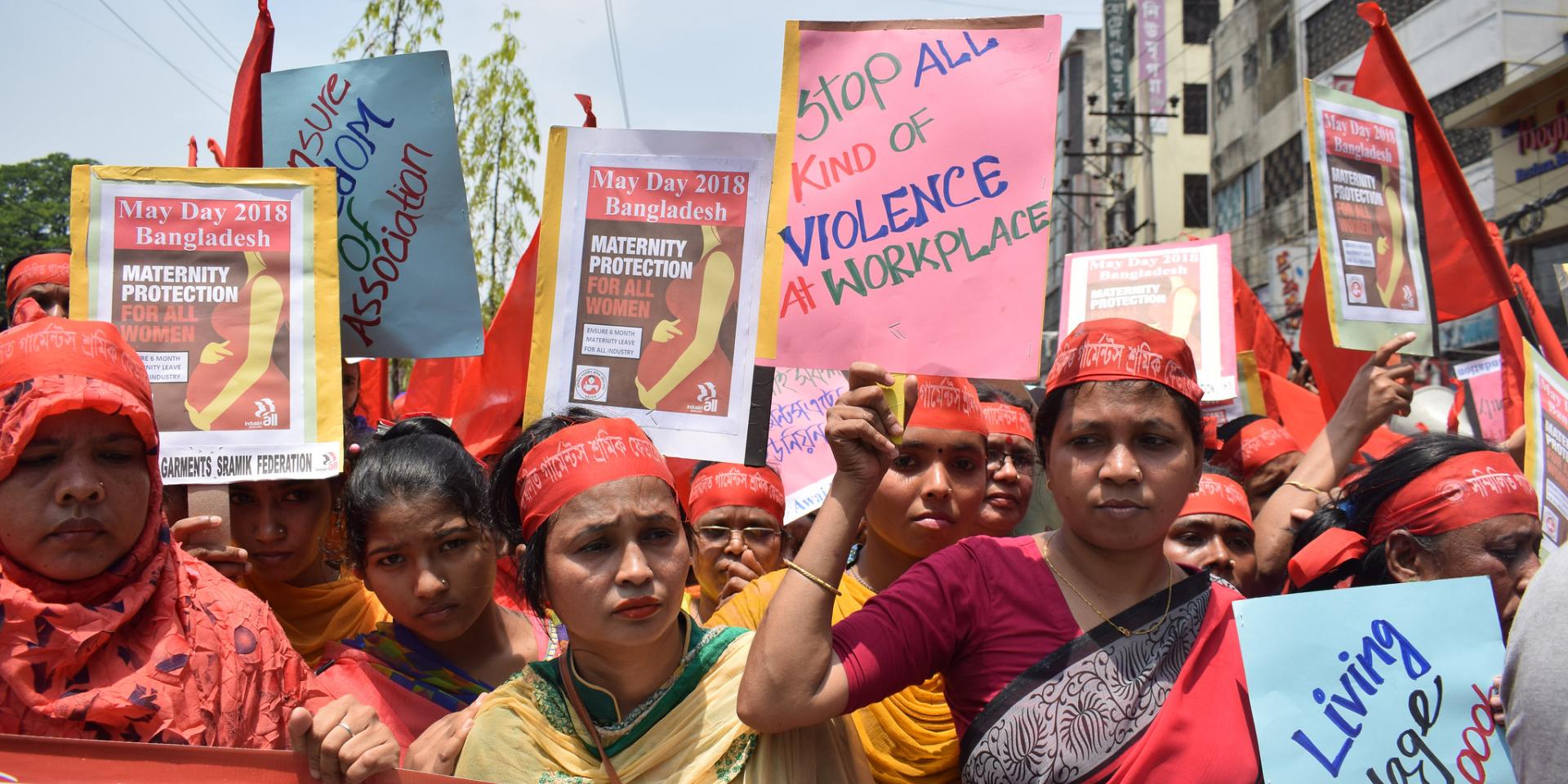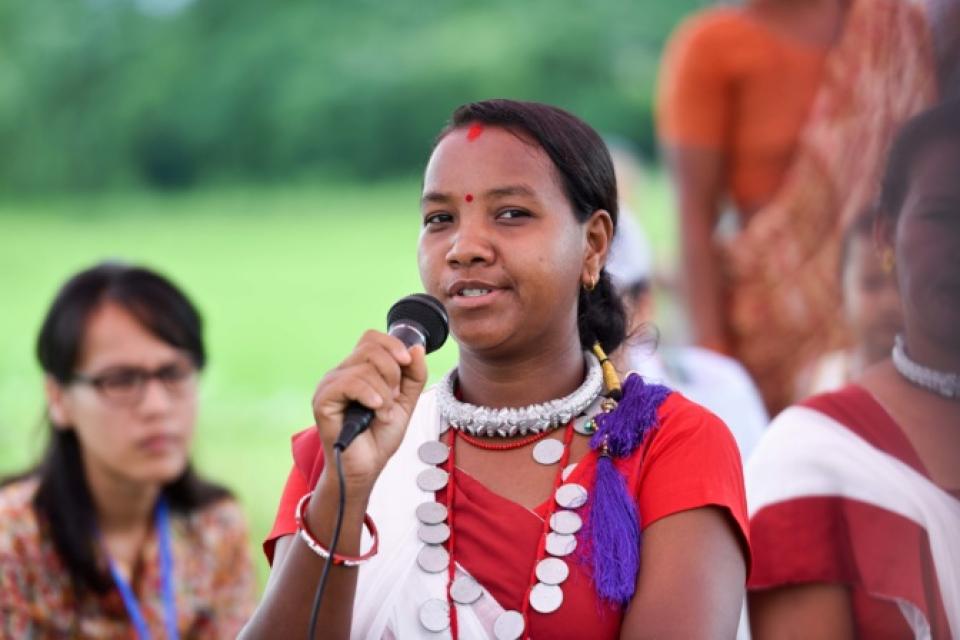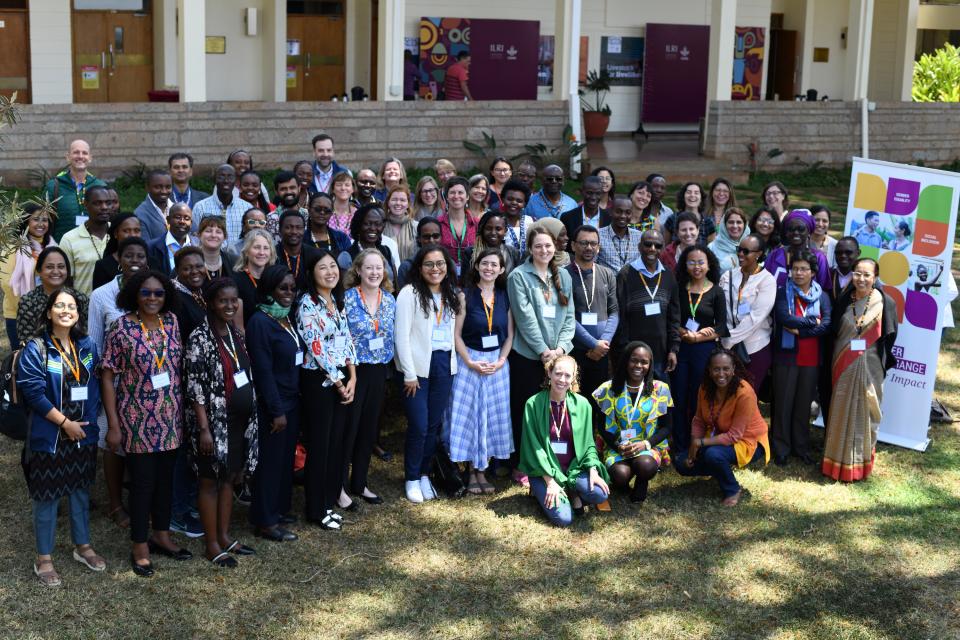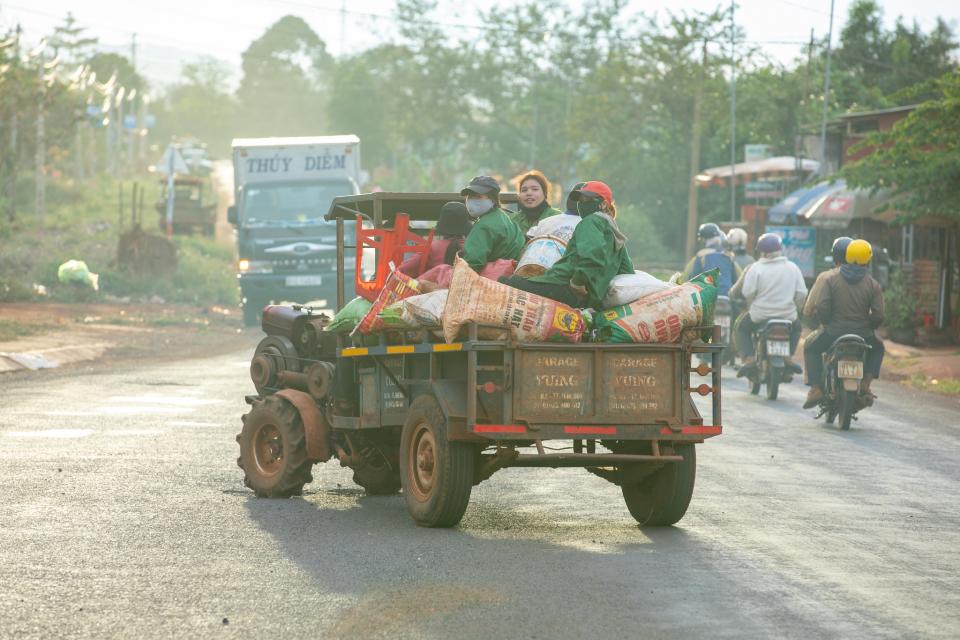Inspiring inclusion: A women-led vision for more inclusive agri-food systems research in CGIAR’s next research cycle
 Photo: Musfiq Tajwar/Solidarity Center.
Photo: Musfiq Tajwar/Solidarity Center.
A women-only stakeholder consultation in Bangladesh yielded four recommendations for CGIAR's next research cycle.
In 2020, when 14 CGIAR centers decided to become more networked—under ‘One CGIAR’—their efforts were defined by a key objective: a shift toward more sustainable and inclusive agri-food systems. This was a momentous shift – given that agricultural investments, innovations and interventions in the past have not always considered systemic gendered inequalities in agri-food systems.
Designing pathways to tackle deep-rooted gendered inequalities requires a more robust understanding of how women experience systemic and structural barriers across institutions – at home, in the community, in market spaces, and in implementing and policy organizations. However, these experiences are unheard – or worse, unvoiced, in policy forums and decision-making platforms that are dominated by men, designed to capture other diverse challenges, or both. Often, attention to gender and social inclusion is a side issue.
This year, CGIAR is hosting a stakeholder engagement process to inform its next research cycle, notably through ‘listening sessions’ in 32 countries. In Bangladesh (as in many other locations), it was a challenge for us to get women to participate in these sessions, even though Bangladesh has a significant number of women agricultural experts, researchers, entrepreneurs and decision-makers. Therefore, we decided to host a women-only ‘listening session’, and the results are fascinating. The session offered a unique opportunity to hear how women professionals in food systems prioritize research agendas, with a core focus on gender inequality.
Bangladesh was also the right place to begin this women-only consultation session. For several years in a row, has identified Bangladesh as South Asia’s most gender-equal country by the Global Gender Gap Report. The annual report measures gender equality through four parameters: economic participation and opportunity, educational attainment, health and survival, and political empowerment.
Building on the suggestions made by the women in leadership positions we heard from in Bangladesh, we draw attention to the following issues for consideration in the design and delivery of CGIAR’s next research cycle.
#1: Deliberately act on structural, systemic inequalities.
Gender interventions in the agri-food sector are often limited to unpacking what women do in the farm and field vis-à-vis men. Issues pertaining to women’s land rights and their invisible labour in agriculture have been highlighted by many feminist researchers. However, much more needs to be done to intentionally tackle these systemic inequalities in policy and program interventions. Making these structural barriers visible and acting on them should be foundational to designing future agricultural research initiatives.
#2: Go beyond the farm and field.
Women play a major role in the agri-food sector beyond the farm, including in post-harvest processing. There is an urgent need to make supply and market chains, food processing and value-addition processes more inclusive of women. All of this could also happen with a focus on homestead gardening and small-scale local and household production, where women are highly involved and where there is the most potential for women to gain individual incomes, and improve food and nutrition security.
#3: Understand that “gender” is not women – it is about addressing social relations of inequality.
Gender-transformative approaches focusing on engaging both women and men (as wives and husbands) in the design of food security interventions were initiated in Bangladesh. Unfortunately, these innovative designs have failed to scale up and out, even though such approaches are crucial to enabling women’s effective participation, agency and empowerment. Gender is not simply about targeting women, it is essentially about tackling all the factors that make for unequal social relations. This includes designing research and programs in ways where men in the family support and enable participation for women. Where there is resistance, counselling for men is needed to explain why women’s contribution is key – for equal social relations, for families at large and for more tangible food security outcomes.
#4: Address masculinity in institutions.
There is a tendency to restrict gender interventions to the field and farm. However, women professionals working across food systems institutions face many challenges, as do men who struggle with overt masculinity. First, women continue to juggle unpaid domestic care responsibilities with paid work. Second, we learnt at the women-only session, that decision-making platforms dominated by men are not always spaces where women professionals and scientists get equal opportunities to speak, to share their research or voice opinions. Women themselves are conditioned to act and function differently in such environments where gender is a peripheral add-on. Women-only spaces and sessions can provide safe spaces for women to discuss alternative ideas, critique what is not working in masculine settings and identify new ways of knowing and doing science and research.
The above suggestions are a reminder of the rich history of women’s movements in Bangladesh which can be traced back to the colonial past. Bangladeshi women’s movements have successfully worked to secure economic opportunities and participation, equal representation in politics, reproductive rights, family law reforms and gender mainstreaming in public policies. Yet, despite these achievements, development interventions are mostly disassociated with women’s networks, movements and agendas. Addressing this gap will result in significant wins to CGIAR’s research-for-impact interventions.
Overall, a pivotal takeaway was that for truly inclusive impact, women should be recognized and engaged as knowledge co-producers and collaborators with agency and capacity, and not only as passive beneficiaries at the farm and field levels. This will happen when there is an institutional culture of deliberately and intentionally creating safe and inclusive spaces for women in planning and decision-making processes, and when listening in and not talking to is a method of communication on critical issues such as ensuring gender inequality and social inclusion through agri-food systems research.
##
Thank you to Temina Lalani-Shariff, Regional Director, South Asia and Timothy J. Krupnik, Regional Director, Sustainable Agrifood Systems Program, Asia and CIMMYT Country Representative for the support in organizing this women-only consultation.


